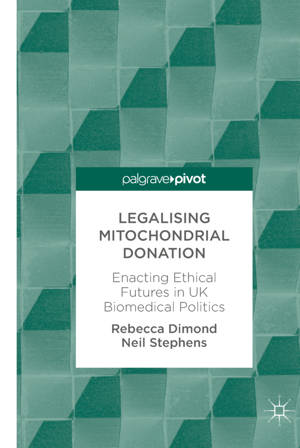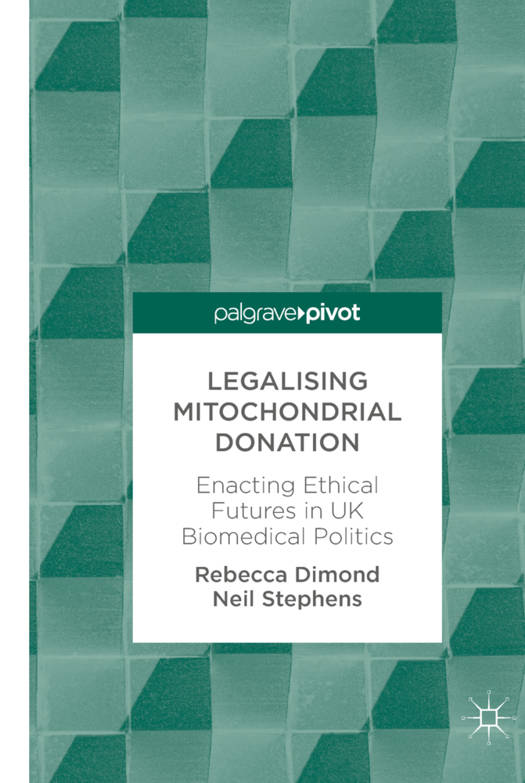
- Afhalen na 1 uur in een winkel met voorraad
- Gratis thuislevering in België vanaf € 30
- Ruim aanbod met 7 miljoen producten
- Afhalen na 1 uur in een winkel met voorraad
- Gratis thuislevering in België vanaf € 30
- Ruim aanbod met 7 miljoen producten
Zoeken
Legalising Mitochondrial Donation
Enacting Ethical Futures in UK Biomedical Politics
Rebecca Dimond, Neil Stephens
Hardcover | Engels
€ 52,95
+ 105 punten
Omschrijving
In 2015 the UK became the first country in the world to legalise mitochondrial donation, a controversial germ line reproductive technology to prevent the transmission of mitochondrial disease. Dimond and Stephens track the intense period of scientific and ethical review, public consultation and parliamentary debates preceeding the decision. They draw on stakeholder accounts and public documents to explore how patients, professionals, institutions and publics mobilised within 'for' and 'against' clusters, engaging in extensive promissory, emotional, bureaucratic, ethical, embodied and clinical labour to justify competing visions of an ethical future. They describe how this decision is the latest iteration of a UK sociotechnical imaginary in which the further liberalization of human embryo research and use is rendered legitimate and ethical through modes of consultation and permissive but strictly regulated licensing. Overall, this book presents a timely, multi-dimensional, and sociological account of a globally significant landmark in the history of human genetics, and will be relevant to those with an interest in genetics, Science, Technology and Society, the sociology of medicine, reproductive technology, and public policy debate.
Specificaties
Betrokkenen
- Auteur(s):
- Uitgeverij:
Inhoud
- Aantal bladzijden:
- 147
- Taal:
- Engels
Eigenschappen
- Productcode (EAN):
- 9783319746449
- Verschijningsdatum:
- 3/04/2018
- Uitvoering:
- Hardcover
- Formaat:
- Genaaid
- Afmetingen:
- 148 mm x 210 mm
- Gewicht:
- 340 g

Alleen bij Standaard Boekhandel
+ 105 punten op je klantenkaart van Standaard Boekhandel
Beoordelingen
We publiceren alleen reviews die voldoen aan de voorwaarden voor reviews. Bekijk onze voorwaarden voor reviews.











